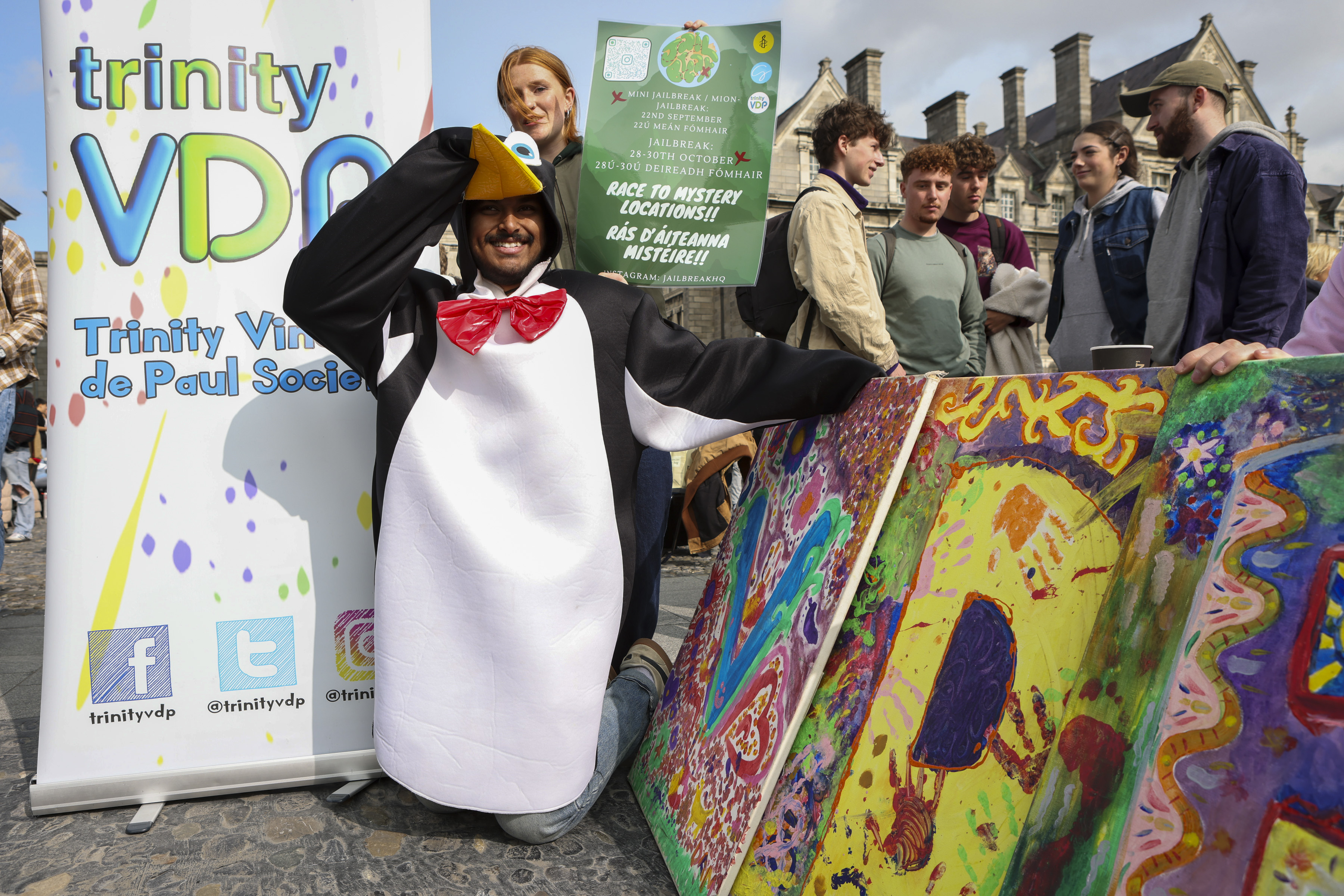Trinity In Twelve Weeks
- Tutors
- The Students' Union (TCDSU / AMLCT)
- Clubs
- Societies
- Volunteering
Student Blogs
Isabel Feeney - English Studies
Hi, I’m Isabel. I thought I’d share some reflections on Semester One so far, linked to some of the big themes that shape the first few weeks in Trinity. Think of this as a bit of a guide, a bit of a ramble, and hopefully a nudge to try out something new while the year is still fresh.
Tutors
Here’s the thing: reach out. That’s what they’re there for. I set up an in-person meeting with mine in first year so we could both put a face to the name, and it was really worth it. You could easily go your whole four years without ever meeting them if they’re in another department, which feels a bit strange. Tutors are your first point of contact for academic issues like extensions on essays or extenuating circumstances. Having that relationship in place makes life much easier if something comes up later. Even if you don’t need them right now, if something does come up you’ll thank past you for taking the initiative.
The Students' Union
The SU is your voice on campus, so use it! Right now, voting is open for class reps, which will elect someone from your course to advocate for you. Yes, class reps do more than organise hoodies, they can also raise issues with lecturers on your behalf. It is worth finding out who yours is.
If you see the Students' Union around campus - like running elections in the Arts Block pods - stop and have a chat with the reps. They are usually happy to explain what the Union actually does. Also, pro tip: scroll all the way to the bottom of Channing’s weekly emails (the SU Comms and Marketing Officer). There will always be a list of current student deals and discounts, and they are usually very good.
Clubs and Societies
Clubs and societies are the heartbeat of Trinity’s social life. Freshers’ Fair might be over, but it is never too late to get involved. The CSC and Trinity Sport websites are basically online shops for societies and clubs: scroll through, pick the ones you like, sign up, and wait for the emails to roll in.
And trust me, there is something for everyone. Want to act? Join Players. Into debating? Go watch the Phil and the Hist. Fancy a surf or ski trip? Those societies have you covered. More into sports? There are dozens of teams, and you don’t need to be an elite athlete to show up at training. A lot of people join societies and clubs for the trips, the events, or just the craic, and it is one of the best ways to meet people outside of your course.
Volunteering
This is where my heart is. I have been an activity leader with Vincent de Paul (VDP) for three years now, and it is the most welcoming and happy space you could imagine. There are loads of ways to get involved, from weekly activities with service users to once-off events.
For the service user activities, you will need to get vetted, but it is absolutely worth it. You can volunteer with children, older people, adults with additional needs, or people experiencing homelessness. It feels meaningful and joyful at the same time. If you are not vetted yet, don’t worry, because there are plenty of activities you can jump into straight away, like food bag packing or letter writing.
The best part is that volunteering is a great way to meet people, and because everyone is there for the right reasons, the atmosphere is automatically warm and kind. Honestly, the charity aspect tends to filter out any bad vibes.
Another brilliant option is volunteering to help with English classes for adults who have been displaced or are seeking asylum, through Trinity's University of Santuary initiatives. I did this in second year, and it was so rewarding. It is basically just chatting, building confidence, and helping people feel more at home in Ireland. It is a small time commitment with a huge impact.
Wrapping Up
So that’s tutors, the SU, societies, and volunteering. They might all seem like separate boxes to tick, but really, they are about the same thing: making connections. Whether it is through academic support, representation, fun, or giving back, the point is to make the most of the community around you.
Semester One can feel overwhelming, but leaning into these things makes it much more manageable and enjoyable. Try one, try them all, or just keep them in the back of your mind for when you are ready. You don’t need to do everything at once, but you will thank yourself later for dipping your toes in now.
See you around campus!
—Isabel
Promise Okafor - General Nursing
This week’s theme - Making the Most of College - reminds me that university life is about so much more than just showing up to class, and about the other supports available to me.
One of the biggest takeaways for me was learning about Tutors. I’ll admit, before this, I thought they were just there for academic queries. In reality, they’re a point of contact for anything that might come up during college. Academic struggles, personal difficulties, or even figuring out how to navigate all the different supports available. It made me realise that reaching out early, even with something small, could make my college experience so much easier.
I also thought more about the Students’ Union and Class Reps. Until now, I’d seen them mainly as the people who organise events and send lots of emails. But they’re actually an important voice for students, representing us in decisions that affect daily College life. Knowing that someone is there to speak up on behalf of my class makes me feel more supported and seen.
Then there are societies, clubs, and volunteering. Trinity has so many options that it can feel overwhelming, but this week reminded me that joining isn’t about adding another responsibility, it’s about finding a community, meeting and making new friends. Whether it’s sports, debating, or volunteering for a cause, these are the things that make the college experience exciting.
Tutors
Who/What is Your Personal Tutor?
Your Tutor is a member of academic staff who looks after your general welfare and development while you are in College. Your Tutor may be one of your lecturers, but your Tutor looks after you, not your grades. If you need assistance in navigating College administration, or advice or support about academic or personal issues, your Tutor is the person to talk to.
Find Out More About The Tutor System
How Do I Find Out Who My Tutor Is?
You can find your Tutor's name and contact email on your Student Record in your MyTCD portal, just under your own name. If there is no name displayed there yet, you can contact the Senior Tutor's Office to find out who your Tutor is.
When Should I Meet My Tutor and What Can They Help Me With?
Once you've found out who your Tutor is, you should reach out to them to introduce yourself, and they may also contact you during your first few weeks at Trinity. Your Tutor will be really important for you during your time in College, so it’s important that you make contact with them early on.
Your Tutor should be your first port of call if you have a question or are worried or concerned about any aspect of College life, or about your personal life affecting your academic work. You can also contact them if you are unsure of how to access support for a particular issue or challenge. Everything you say to your Tutor is in strict confidence. Unless you give them permission to do so, your Tutor will not share anything you disclose to them to anybody else - whether within College or externally (to your parents/family, for example).
Your Tutor can only help you if they know you are facing difficulties, so, if you are worried about anything, go and see your Tutor before things get out of hand. Whilst your Tutor may not be in a position to solve the underlying problem, they can help you find the best way to limit the impact of your situation on your College work.
Do consult your Tutor. They can and often do make a difference.
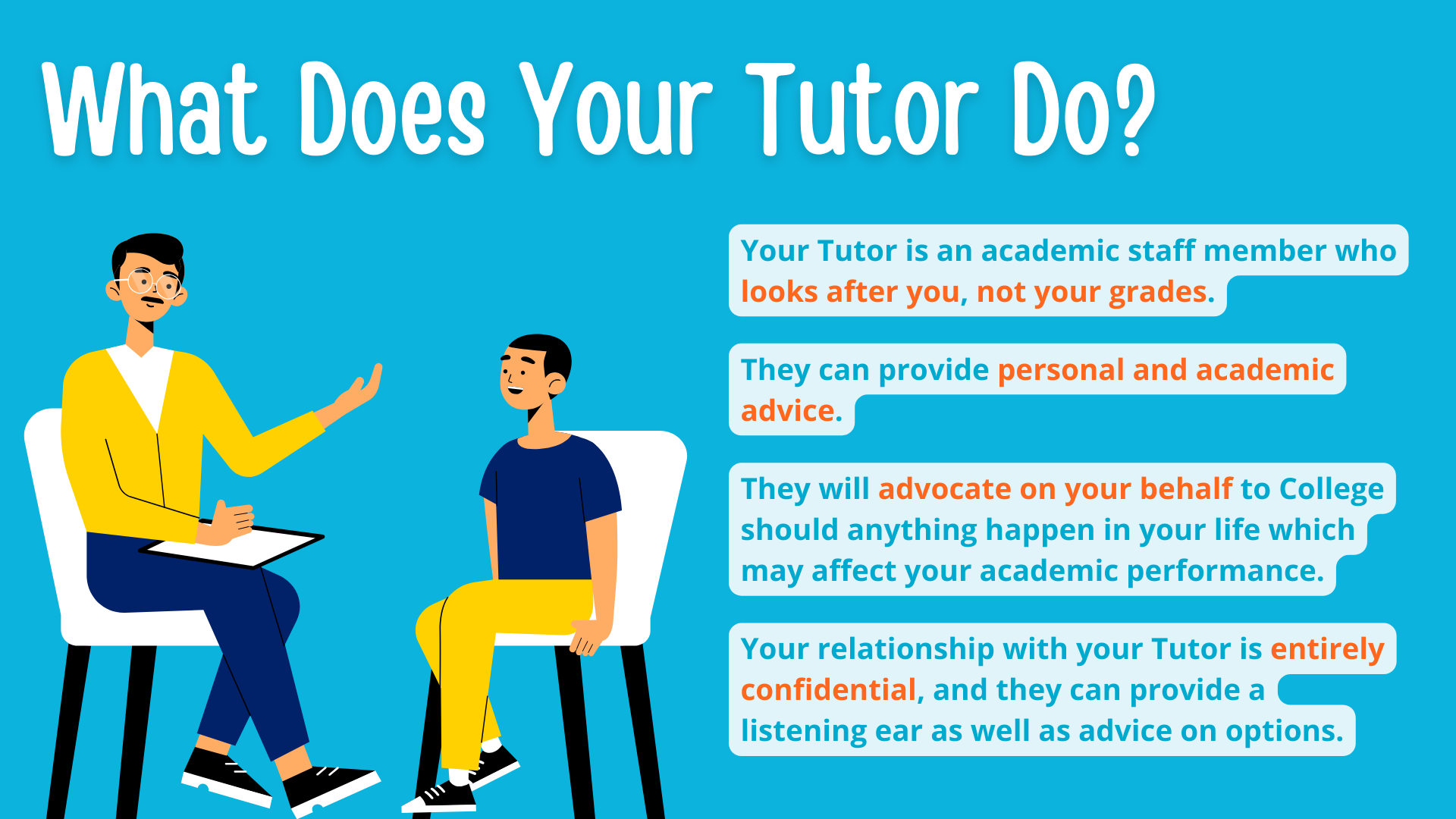
Trinity College Dublin Students' Union /
Aontas Mac Léinn Choláiste na Tríonóide
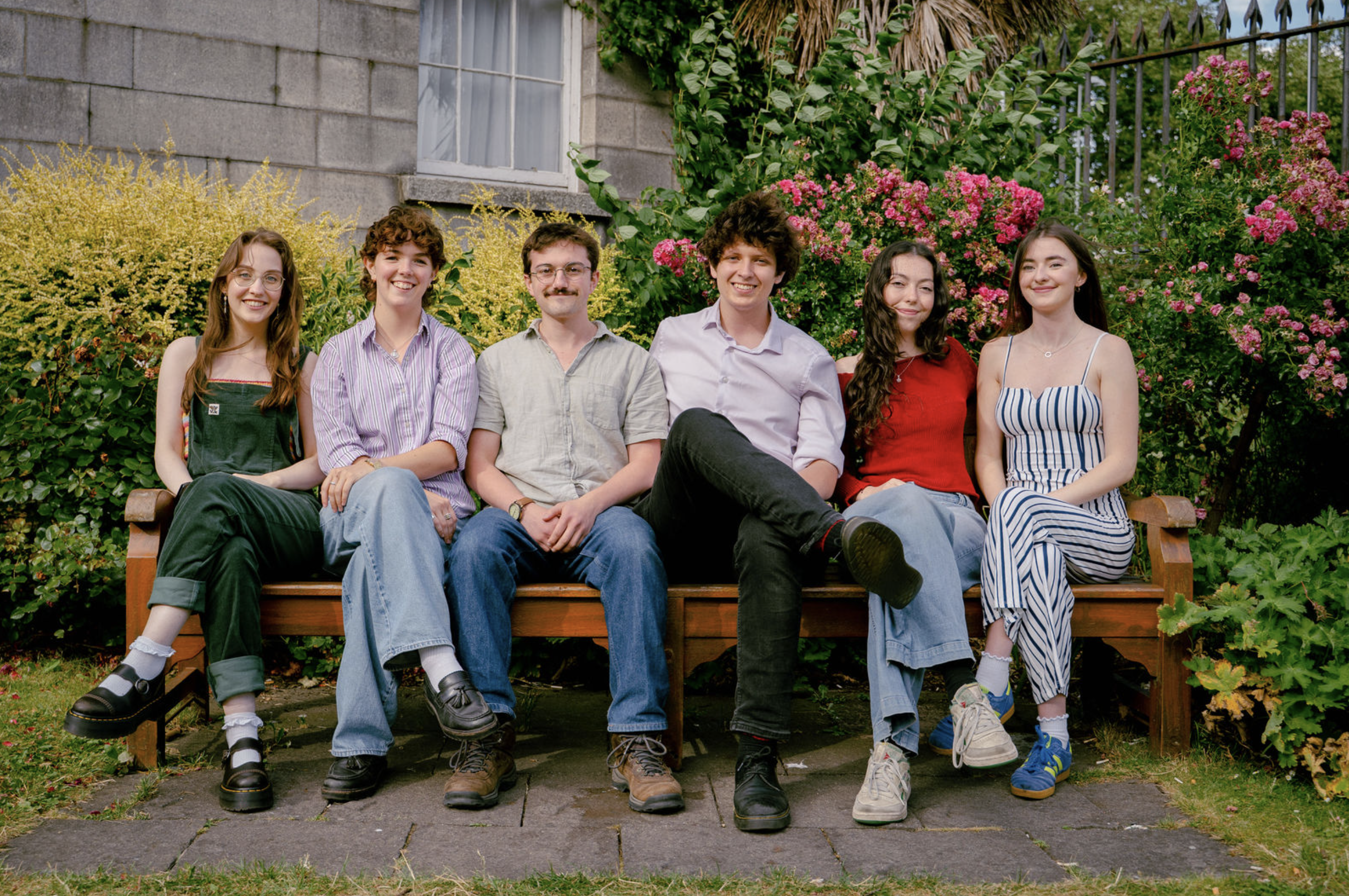
Who They Are
The Students' Union/Aontas Mac Léinn is your place in Trinity, where your voice can be heard, and where you can turn for help when you need it. TCDSU/AMLCT are an independent organisation, run by students and Sabbatical Officers,* not the College. There are six full-time Sabbatical Officers (President, Education, Welfare and Equality, Communications and Marketing, Ents, and Gaeilge); Part-Time Officers who work in a range of areas; and every class has at least one Class Rep - so you have easy access to the SU/AML when you need it.
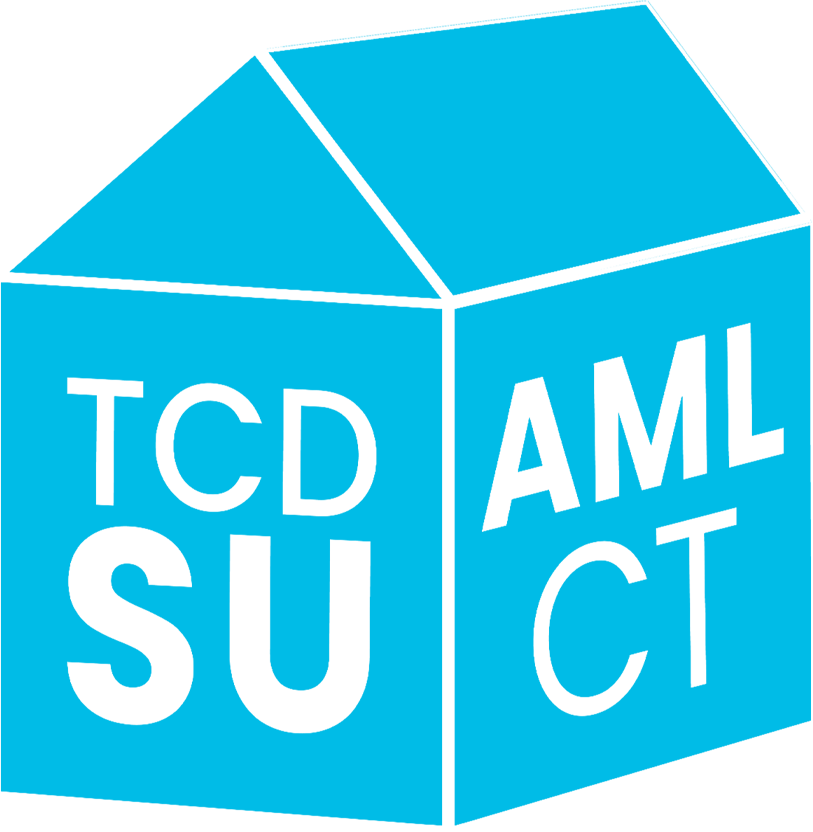
What They Do For You
Pretty much anything! If you're struggling to find somewhere to live, the Union's Accommodation Advisory Service can give you guidance; if you or your classmates are having trouble academically, the Education Officer can help; if you don't have the money you need to pay an urgent bill, go talk to the Welfare and Equality Officer; if you're interested in student activism, you can get involved in campaigns; and let's not forget the biggest nights out of the year with Trinity Ents/Siamsa na Tríonóide! The SU/AML also advocate on your behalf within College and beyond to make sure that the student voice is heard on issues that matter to you.
Welfare and Equality Officer’s Webpages
Campaigns
The SU/AML run and are involved in a lot of campaigns, addressing issues from fees and funding to mental health. Have a look at the President's webpages and get involved! You can canvas, march, make posters, raise awareness, and - of course - make some like-minded friends in the process.
Accommodation Advisory Service
The TCDSU/AMLCT Accommodation Advisory Service assists students in finding suitable accommodation around Dublin. Check out their website to access their Digs Portal and resources, including their 'How to Find a Gaff Guide' and guides to tenancy rights. The Service also offers advice via email: accommodation@tcdsu.org
TCDSU/AMLCT Accommodation Advisory Service
Refresh IT Repairs
Dropped your phone in the toilet? Spilled coffee all over your laptop? Clicked a dodgy link and now everything's broken?
Refresh can save the day!
You'll find them on the ground floor of House 6/Teach 6, and they repair phones and laptops, and stock technological essentials such as charging cables and USB sticks.
The SU/AML Shops & Café
The SU/AML run two shops and a café on campus.
They have a shop in both House 6/Teach 6 and the Hamilton which sell snacks, drinks, and sandwiches, as well as stationery, tea bags and other household staples, and Trinity merch. The SU/AML shops will generally be a bit gentler on your wallet than Spar or Centra, so it's worth using them. They're typically open Monday - Friday, 08:00 - 17:00
The SU Café is in Goldsmith Hall. In the SU Café, you'll find sandwiches, toasties, sweet treats, and the cheapest barista coffee around. There's also lots of space to eat your food and catch up with friends. They're typically open Monday - Friday, 09:30 - 16:30. Follow the SU Café on Instagram (@trinitysucafe) for updates on weekly specials, opening hours, and more!
Clubs
What They Are
Here at Trinity, we use the word 'club' to refer to a student sport group. Ranging from team sports and adventure sports to water sports and martial arts, there is something for everyone.
If you already play a sport, then go sign up to the club and get out on the field/court/wall/water, etc. If you don't, the clubs are very welcoming, and most have a social team/side, as well as a competetive team.
How To Join
Use the link below to find out more about each of our sports clubs, and then sign up via the links embedded in the club's webpage(s).
When signing up to a club, you will usually have to pay a joining fee which goes towards the cost of insurance, equipment, coaching, etc. If you find a club you're interested in, but aren't 100% sure you want to sign up yet, contact them and ask if you could come along to their next event to get a feel for it.
Sports Clubs Information and Sign Up
What's In It For You?
Opportunities to improve your health and wellbeing, the chance to represent Trinity, leadership possibilities, and much more! Sports clubs are notoriously social, so they're also a great place to go to make new friends while you are here in College.
Getting regular exercise is great for your overall health - both mental and physical. Research shows that students who dedicate 10-15 hours a week to extracurricular activities and/or part-time work perform better academically. Just bear in mind that that's 10-15 hours total across all of your non-academic activities, not per activity - so don't stretch yourself too thin!
I'm Desperately Unfit But I Still Want to Play!
You can join a club regardless of your fitness levels. It might take a while before you compete for them, but you'll still be part of the team if you are training and participating. It might be worth looking at some of the less... vigorous sports, too.
Alternatively, you can check out the social sport options around campus:
Physical Activity Resources from the Healthy Trinity Online Tool (H-TOT)
College life can be exciting but also overwhelming—with deadlines, new environments, and the constant juggle of study and social life. One of the best ways to keep balance, reduce stress, and avoid burnout is through physical activity. But being active isn’t just about fitness—it also boosts your mental health, supports the environment, and even benefits the economy.
The Physical Activity section in the Healthy Trinity Online Tool (H-TOT) is your one-stop guide: discover what physical activity really is, explore its health, social, and environmental benefits, assess your own activity levels, find tips for moving more, and learn how technology can help. You’ll even uncover how to beat sedentary habits and access practical resources to make staying active a part of everyday student life.
Ready to take the first step? Dive in and see how being active can transform your college experience. Login to Blackboard, use the Assist tool on the left to find the ‘Healthy Trinity Online Tool,’ click on 'Physical Activity' on the homepage.
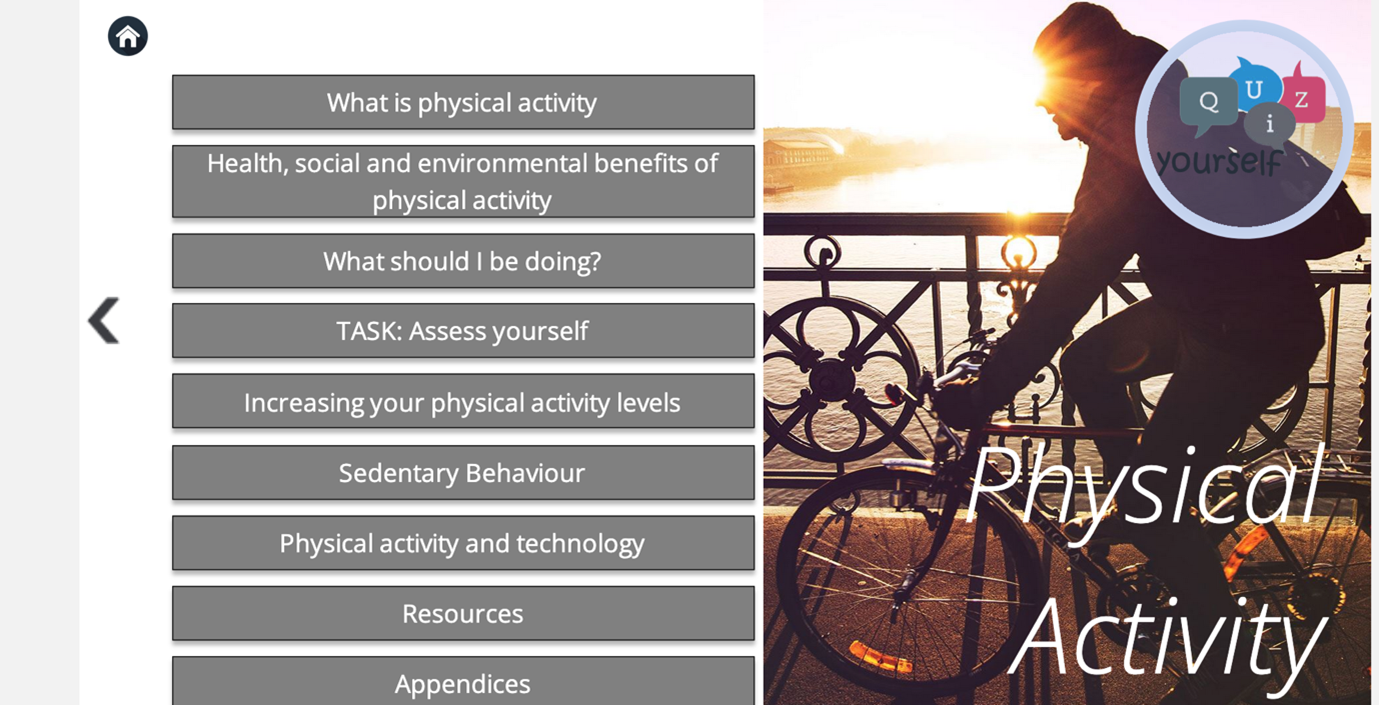
Societies
What They Are
Societies are organisations that students set up to pursue shared interests. That sounds a bit vague, but it makes more sense when you look at the list of societies on offer. Each society is run by students who are passionate about it, whatever 'it' may be - debating, acting, activism, music, an academic field or topic, the list is endless. Well, not endless... the list is just over 120 societies long. But that's plenty to be getting started with, and if you have an interest that isn't currently represented by a society, you can set up your own through the Central Societies Committee.
How To Join a Society
You probably parted with some society joining fees during Freshers' Week, but, if you didn't, or if you've realised that you forgot to sign up to something you meant to, don't panic! You can join a society at any time during the academic year via the online Societies Hub.
As mentioned, you will usually have to pay a joining fee to sign up to a society, so if you're not 100% sure you want to commit just yet, contact the society and ask about coming along to their next event to get a feel for it.
What's In It For You?
Great friends, lots of social events, leadership opportunities, a chance to improve your skills or develop brand new ones, and much, much more! Research also shows that students who dedicate 10-15 hours a week to extracurricular activities and/or part-time work perform better academically. Just bear in mind that that's 10-15 hours total across all of your non-academic activities, not per activity - so don't stretch yourself too thin!
Volunteering
Why Volunteer?
- It's good for us.
Volunteering provides physical and mental rewards. It:- Reduces stress: Experts report that when we focus on someone other than ourselves, it interrupts our usual tension-producing patterns.
- Makes us healthier. Moods and emotions, like optimism, joy, and a feeling of control over one's fate, strengthen the immune system.
- It saves resources.
Volunteering provides valuable community services so more money can be spent on local improvements. - Volunteers gain professional experience.
You can test out a range of roles (with accompanying responsibilities) which may help you to identify what you are looking for from a career. - It brings people together.
As a volunteer you assist in:- Uniting people from diverse backgrounds to work towards a common goal
- Building camaraderie and teamwork
- Fostering understanding and empathy
- It promotes personal growth and self esteem.
Understanding community needs and working to help meet them helps foster empathy and self-efficacy. - Volunteering strengthens your community.
As a volunteer you help:- Support families (daycare and eldercare)
- Improve schools (tutoring, literacy programmes)
- Support youth (mentoring and after-school programmes)
- Beautify the community (local area clean-ups)
- You learn a lot.
Volunteers learn about:- Self: Volunteers discover hidden talents that may change your view on your self-worth.
- Government: Through working with local non-profit agencies, volunteers learn about the functions and operation of our government.
- Community: Volunteers gain knowledge of local resources available to solve or support community needs.
- You get a chance to give back.
Volunteering offers you opportunities to support community resources that you might use yourself, or that benefit people you care about. - Volunteering encourages civic responsibility.
Community service and volunteering are an investment in our community and the people who live in it. - You make a difference.
Every person counts!
Who Should I Volunteer With and How Do I Sign Up?
Who you should volunteer with depends on what you want to get out of the experience. If you are interested in helping young people, then you might look at mentoring and tutoring programmes. Maybe you're looking to help improve life in areas that have suffered natural disasters and you should look at charities that work overseas. Perhaps you would like to support your local area, and there may be neighbourhood organisations that you can join. The most important thing is to choose something that you are passionate about.
There are a large number of volunteering societies and charity organisations on campus that you can get involved with easily. They support causes from amnesty to services for cancer patients. Have a look at the 'Advocacy/Development' pages in the Societies Hub to get started!
You should also look at StudentVolunteer.ie for details of volunteering opportunities oustide of the campus organisations!
Dean's Awards for Volunteering
The Dean of Students recognises and celebrates student volunteering in the community and in Trinity organisations (such as the clubs, societies, Students' Union, and publications) with the Dean's Awards for Volunteering. There are three possible awards, and each recognises a different level of engagement. The three awards are:
- The Dean's List for Volunteering
- The Dean's Leadership Award for Volunteering
- The Trinity Legacy Award for Volunteering
You'll receive an email with more information about applying for the Dean's Awards for Volunteering later in the academic year, so keep your eyes out!
Gaisce
Gaisce - the President's Award - is Ireland's national challenge award (the equivalent of the Duke of Edinburgh Award in the UK), and is the most prestigious and respected individual award programme in the country. It is a challenge from the President of Ireland to young people between 14 and 25 years of age.
There are three separate and progressive levels of the Award: Bronze, Silver, and Gold. Each Award works on the basis of personal challenges set by you. There are three different Challenge Areas: Community Involvement, Personal Skill, and Physical Recreation. To earn an award, you choose your own activities within each Challenge Area in consultation with a President's Award Leader, and then complete your application online. Once you have applied, you can begin your challenge: completing a minimum of one hour per week of each Challenge Area activity for a set number of weeks, an Adventure Journey, and - if going for Gold - you will also need to undertake a Residential Project.
